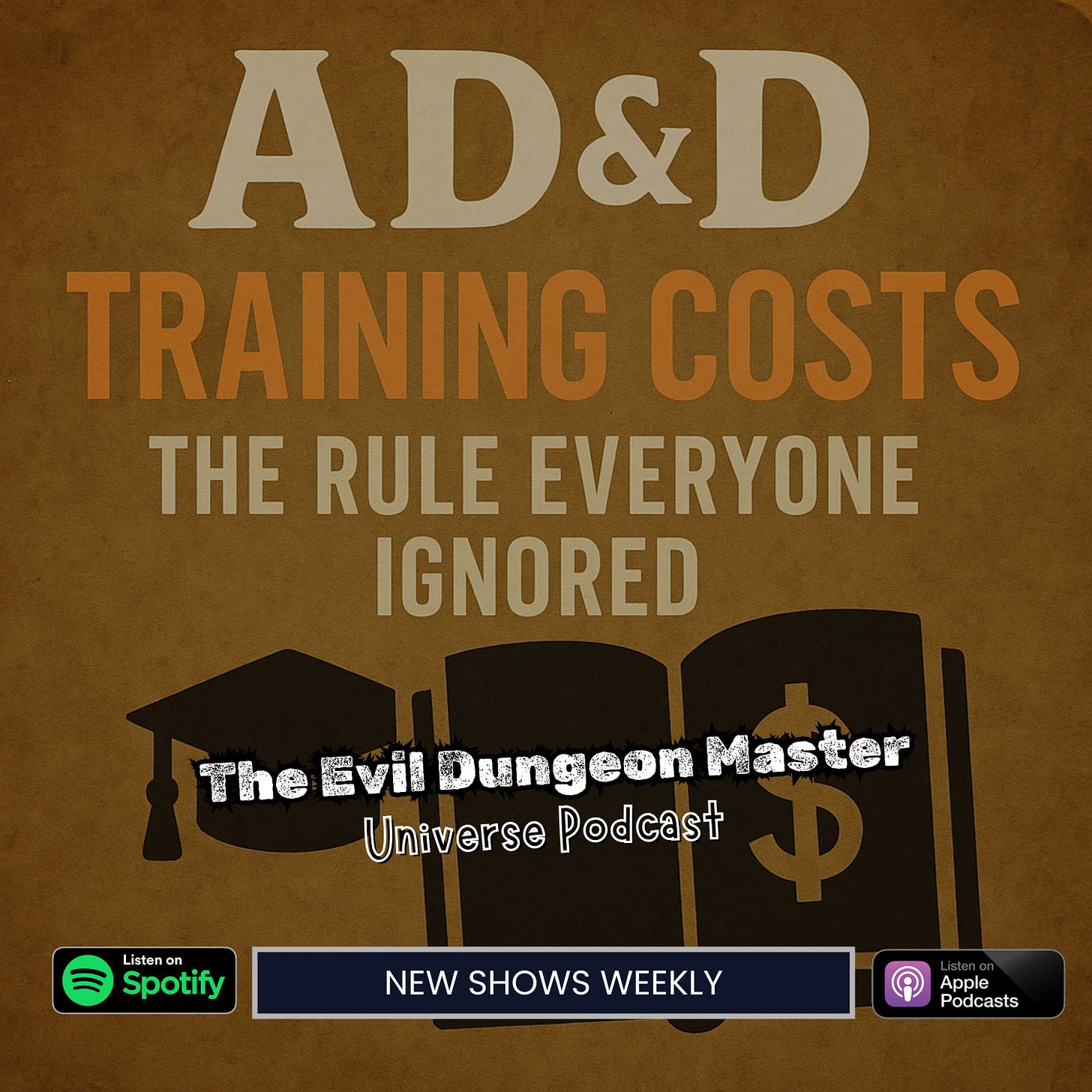AD&D Training Costs: The Rule Everyone Ignored?
Let’s be honest. Most of us who played AD&D 1st Edition skipped the training cost rules. We saw them in the DMG, maybe gave them a confused look, and moved on.
But Gygax had a plan. Sort of.
In the rules, leveling up wasn’t automatic. Even if you had enough XP, you still needed to stop what you were doing and go find a trainer. Then you had to spend time learning, and pay gold. A lot of gold. The better you did during the adventure, the cheaper the cost. If you underperformed? It got expensive.
Oh, and alignment affected the fee too. Because of course it did.
For example, a Lawful Good paladin might get a discount for being disciplined. A Chaotic Neutral thief might pay more because… chaos. And the DM was expected to track all of this. Manually.
No wonder everyone ignored it.
Still, the idea wasn’t totally useless. Gygax was trying to slow things down. He wanted players to feel like they had to earn their power—not just through XP, but through time, effort, and gold. It was a gold sink. A story opportunity. A way to make downtime matter.
Problem is, it killed momentum. Most players just wanted to hit the next dungeon, not take a two-week in-game seminar with a grumpy swordmaster.
Could this rule work today? Maybe. You could use it for wizards only. Or tie it to finding rare scrolls or mentors. Or maybe let it unlock special bonuses instead of being required.
But let’s be real. You’re still not going to use it.
And that’s okay.
AD&D gave you the tools. What you built with them? That was always up to you.




